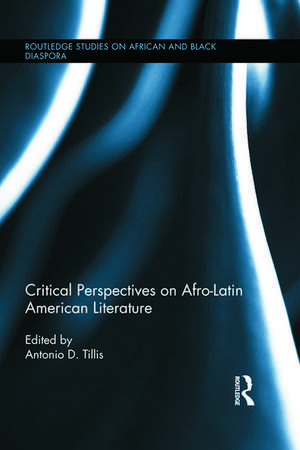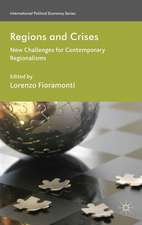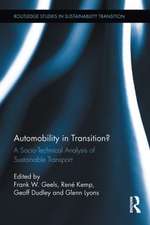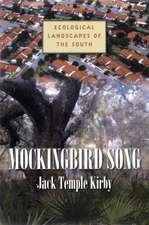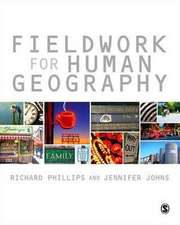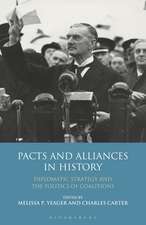Critical Perspectives on Afro-Latin American Literature: Routledge Studies on African and Black Diaspora
Editat de Antonio D. Tillisen Limba Engleză Paperback – 20 sep 2013
| Toate formatele și edițiile | Preț | Express |
|---|---|---|
| Paperback (1) | 433.30 lei 6-8 săpt. | |
| Taylor & Francis – 20 sep 2013 | 433.30 lei 6-8 săpt. | |
| Hardback (1) | 1007.48 lei 6-8 săpt. | |
| Taylor & Francis – 22 dec 2011 | 1007.48 lei 6-8 săpt. |
Preț: 433.30 lei
Nou
Puncte Express: 650
Preț estimativ în valută:
82.92€ • 90.04$ • 69.65£
82.92€ • 90.04$ • 69.65£
Carte tipărită la comandă
Livrare economică 22 aprilie-06 mai
Preluare comenzi: 021 569.72.76
Specificații
ISBN-13: 9780415719773
ISBN-10: 0415719771
Pagini: 272
Dimensiuni: 152 x 229 x 15 mm
Greutate: 0.39 kg
Ediția:1
Editura: Taylor & Francis
Colecția Routledge
Seria Routledge Studies on African and Black Diaspora
Locul publicării:Oxford, United Kingdom
ISBN-10: 0415719771
Pagini: 272
Dimensiuni: 152 x 229 x 15 mm
Greutate: 0.39 kg
Ediția:1
Editura: Taylor & Francis
Colecția Routledge
Seria Routledge Studies on African and Black Diaspora
Locul publicării:Oxford, United Kingdom
Public țintă
Postgraduate and UndergraduateCuprins
Introduction Antonio D. Tillis Part One: Engaging the Transnational, Cosmopolitan and Postcolonial in Afro-Hispanic Texts Introduction to Part One Antonio D. Tillis 1. Roots and Routes: Transnational Blackness in Afro-Costa Rican Literature Dorothy E. Mosby 2. Los nietos de Felicidad Dolores (The Grandchildren of Felicidad Dolores) and the Contemporary Afro-Hispanic Historical Novel: A Postcolonial Reading Sonja Stephenson Watson 3. Cultural Transnationality and Cosmopolitanism in the Poetic Journeys of Nancy Morejón Antonio D. Tillis Part Two: Africa and African Cosmology and Literary Tradition in Hispanic (Con) Texts Introduction to Part Two Antonio D. Tillis 4. Yoruba Cosmology as Technique in Malambo by Lucía Charún-Illescas Aida L. Heredia 5. Myth, Legend & Reality: Redesigning the Narrative Style in Manuel Zapata Olivella’s Hemingway, the Death Stalker Cristina Cabral 6. Nicomedes Santa Cruz: A Clarion for Black Cultural Traditions in Peru Martha Ojeda 7. Bridging Literary Traditions in the Hispanic World: Equatorial Guinean Drama and the Dictatorial Cultural-Political Order Elisa Rizo Part Three: Defining and Redefining Identities in Latin American Literature Introduction to Part Three Antonio D. Tillis 8. Black, Woman, Poor: The Many Identities of Conceição Evaristo Ana Beatriz Rodrigues Gonçalves 9. The Triumph Within: Carolina Maria de Jesus and Strategies for Black Female Empowerment in Brazil Dawn Duke 10. Talking Back with Ana Lydia Vega: Identity, Gender and the Subversive Portrayal of Mestizaje Emmanuel Harris, III 11. Dialogically Redefining the Nation: Hip-hop and the Collective Identity Lesley Feracho
Descriere
After generations of being rendered virtually invisible by the US academy in critical anthologies and literary histories, writing by Latin Americans of African ancestry has become represented by a booming corpus of intellectual and critical investigation. This volume aims to provide an introduction to the literary worlds and perceptions of national culture and identity of authors from Spanish-America, Brazil, and uniquely, Equatorial Guinea, thus contextually connecting Africa to the history of Spanish colonization.
